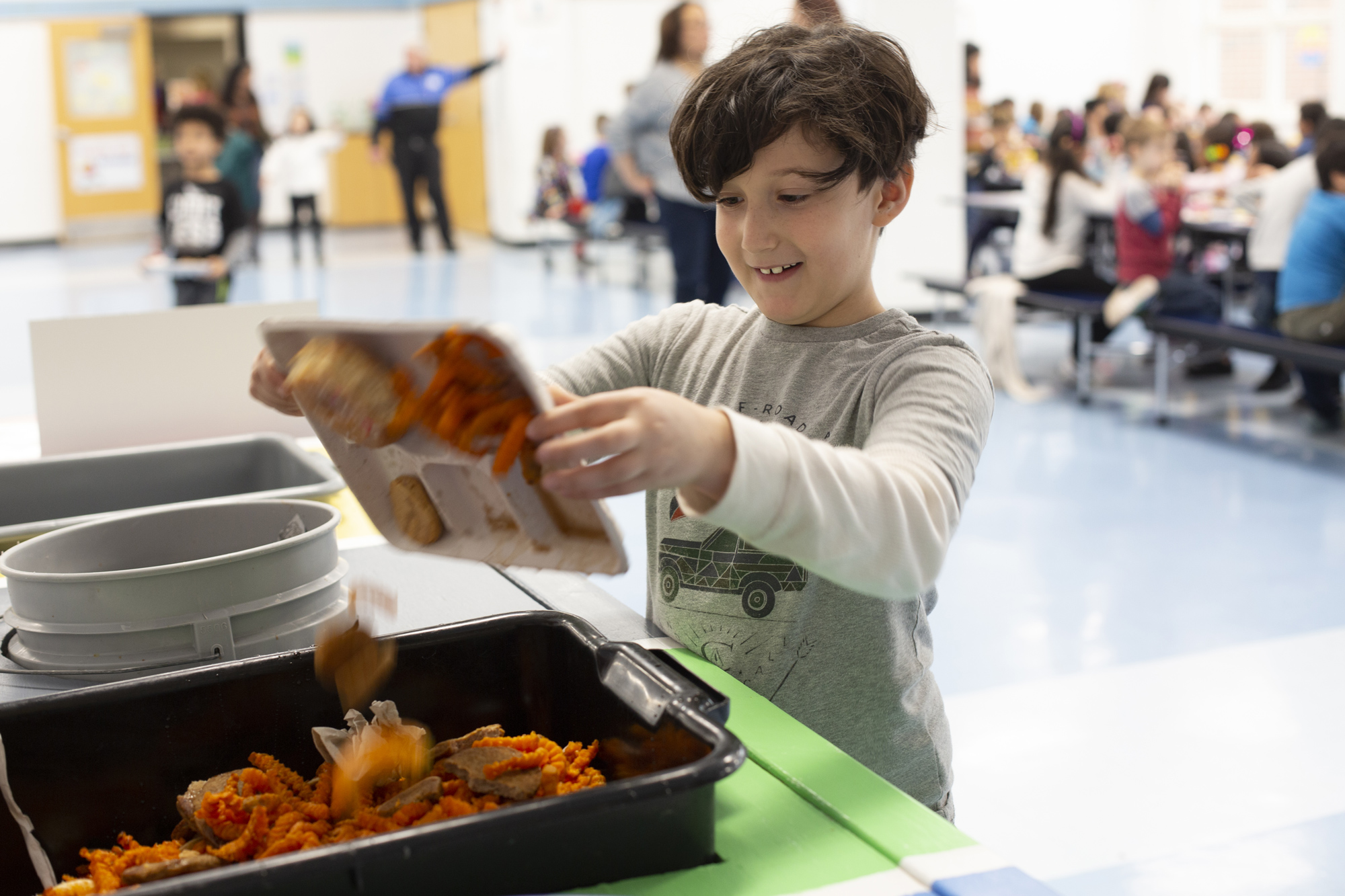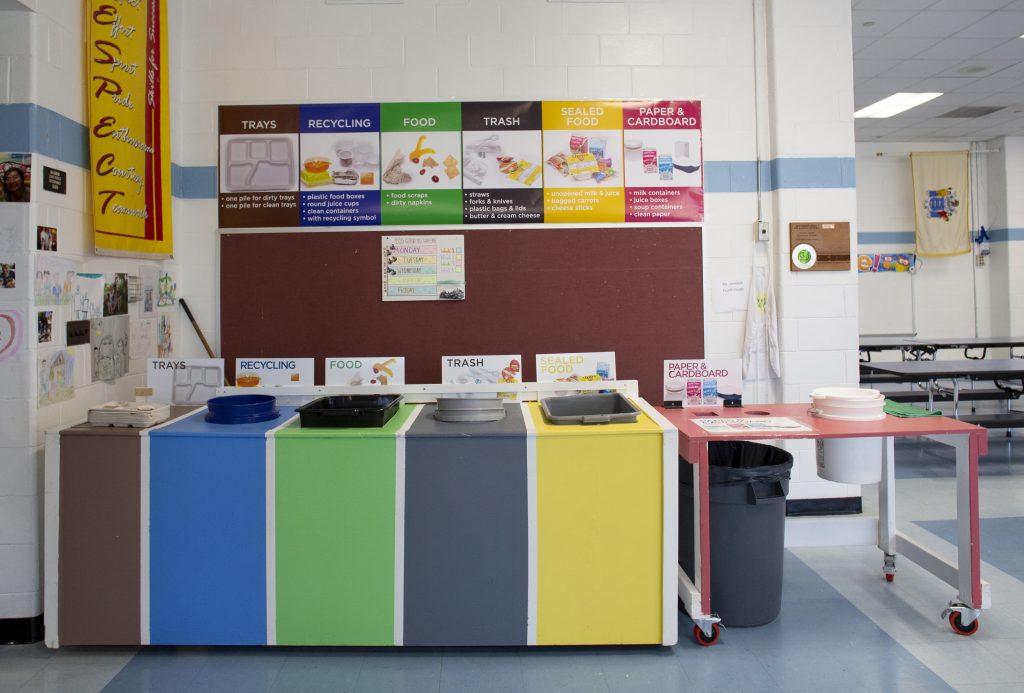Vito Mazza of Wintegrity Solutions – and ACS parent of two – standing next to the new food waste processor.
Starting in 2020, instead of throwing our leftover and uneaten food in the trash every day, we are now turning it into fertilizer. In the ACS cafeteria kitchen, you can now see this big composter/dehydrator. It will accept up to 250 pounds of food waste and wet, soiled paper (like napkins) every day. When the ACS staff turns on the machine at the end of the day, it breaks up the food, heats it, and stirs it for 15 hours. In the morning, we get a bucket of clean water plus 25 pounds of biomass, which can be mixed into growing soil in a 1-to-9 ratio (one part biomass to nine parts soil).

The biomass that comes from our food waste is dry, clean, and looks a lot like coffee grounds. But instead of making coffee, we will be using it all over our district’s school grounds to help nourish our grass, trees, and flowers. Starting soon, you will also be able to take home some biomass to use in your own gardens at home! Keep an eye out for a notice from school that letting you know how and where to grab your very own container of fertilizer.

Since we stopped throwing our food scraps in the garbage, we have lowered the number of garbage bags coming out of our cafeteria every day from 5 to just 2! We are the first school district in New Jersey to use a food waste processor in our cafeteria, but we hope that other schools will join us soon.

